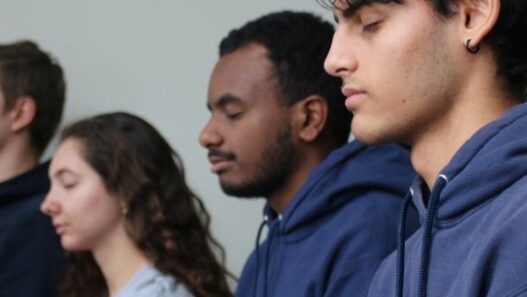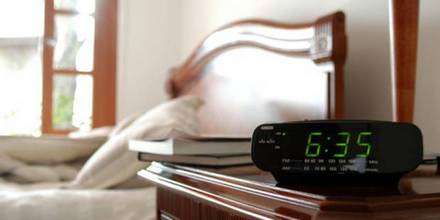You’re about to hit the sack when you hear the oh-so-familiar sound, bleep! bleep! What do you do? Ignore it and turn off your phone. Or reach out for it, read the message, read another message, like, retweet, reply, (repeat)…
It’s no news that modern gadgets tempt us to (inter)act 24/7, resulting in epic—or should we say, epidemic? — levels of sleep deprivation.
 Staying awake… at the expense of tomorrow
Staying awake… at the expense of tomorrow
You’ve probably also heard that too little nighttime rest correlates with a rise in levels of blood pressure, cholesterol, risk of heart disease, cancer, diabetes, obesity, car crashes, etc.
Yet let’s be realistic: it is very unlikely you will change your sleeping habits motivated by what your blood lipid count will be ten years down the line.
Well, here are four very down-to-earth and immediately effective reasons to switch off your gadgets and get enough sleep.
1. You will feel great!
Your brain is wired to feel good ONLY when it’s well-rested. Studies show that lack of sleep leads you to feel irritable, angry, and, in some cases, even depressed.[i] If everything seems to get on your nerves, assess your possible sleep debt and start paying it off!
2. You will have better relationships, and right away
Not enough rest at night makes you more likely to get into a fight and to have less empathy, poorer problem-solving skills and more negativity. In fact, just ONE night of insufficient sleep increases the likelihood of conflict with your significant other.[ii] So, what happens between the sheets indeed determines the quality of the relationship. 😉
 3. You will look irresistibly good
3. You will look irresistibly good
The benefits of ‘beauty sleep’ are now confirmed in the laboratory. Rigorous tests have shown that others assess sleep-deprived people as less attractive, sadder and less healthy.[iii]
4. You will ace it at work
Sleep deprivation makes you forgetful and harms your ability to pay attention and make decisions. Add to this the above difficulties in communication, and you have a recipe for professional disaster. So whatever line of work you’re in, sufficient sleep is a must in order for you to be great at what you do.[iv]
As you can see, solid science shows that enough rest at night will make your entire world so much brighter even the very next day — quite an acceptable reason for hitting the sack on time.
Practical tips for sleeping like a baby
Tossing and turning in bed? Keep in mind how the following factors impact your sleep quality:
Stimulants
Avoid anything stimulating close to bedtime: caffeine (coffee, tea, cola), alcohol, nicotine, vigorous exercise, social media and Huffington Post (yep, you read that right — keep away from “sticky” content that will keep running through your head even after you hit the sack).
Light
Be smart with light! Open the curtains right after awakening to help you get going; in contrast, turn down the lights — especially the kind emitted by your laptop, smartphone, tablet or TV! — at least 2 hours before bedtime. The blue light emitted by gadgets makes your brain too hyper to get proper rest.
Environment
Check your bedroom for hidden bogeymen! Your brain and your computer cannot both be on sleep mode at the same time and place. The light emitted by devices on standby can still be enough to keep your brain from “switching off”.
In fact, the closer you can get to pitch black, the more sleep hormones you’ll produce. Also, eliminate distracting sounds as much as possible (city dwellers, read this: is your white noise machine on?), and turn down the thermostat to keep the room nice and cool.
Exercise
Working out vigorously in the morning or afternoon results in so many benefits — including improving your sleep quality.

Peace of mind
Too stressed out to fall asleep? Don’t get caught up in the vicious cycle of “too little sleep — more stress — even less sleep — even more stress,” which is bound to happen if you do nothing about it. Try a scientifically proven stress reduction technique such as Transcendental Meditation, which, as a variety of studies show, relieves both stress and insomnia.
REFERENCES:
[ii] “The Role of Sleep in Interpersonal Conflict. Do Sleepless Nights Mean Worse Fights?” See also: “Sleep deprivation adversely affects interpersonal responses to frustration”
[iii] “Cues of Fatigue: Effects of Sleep Deprivation on Facial Appearance”










 Staying awake… at the expense of tomorrow
Staying awake… at the expense of tomorrow
 3. You will look irresistibly good
3. You will look irresistibly good







